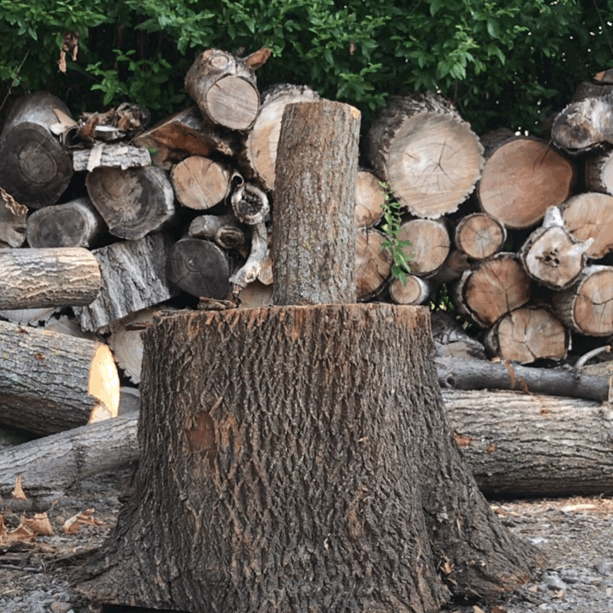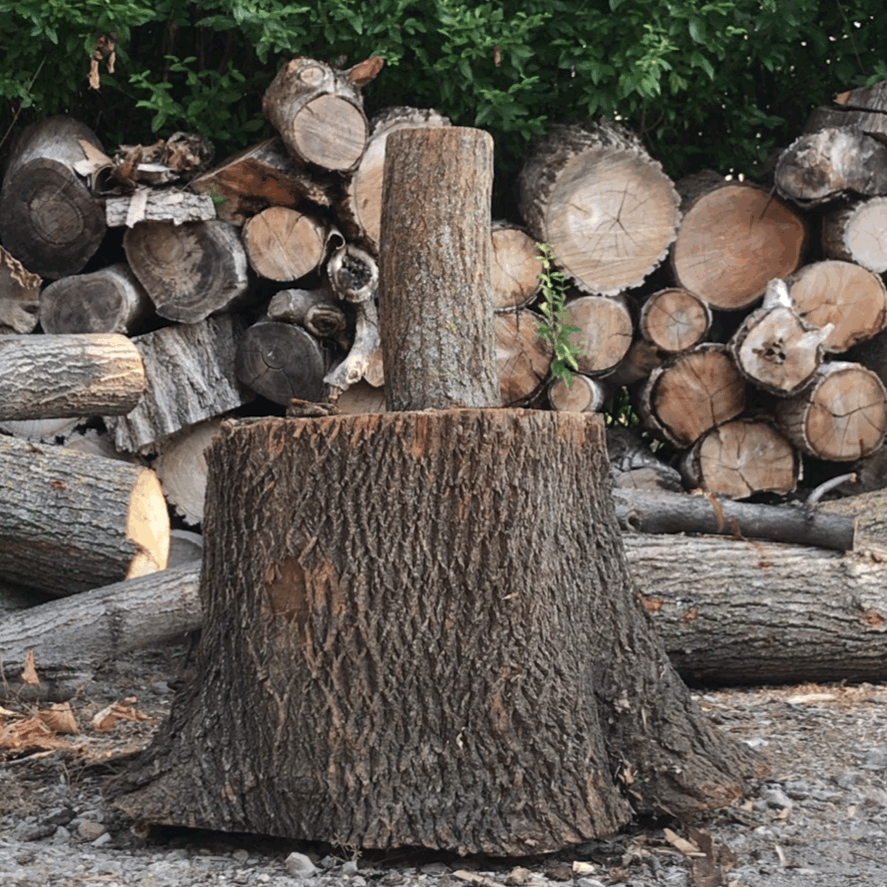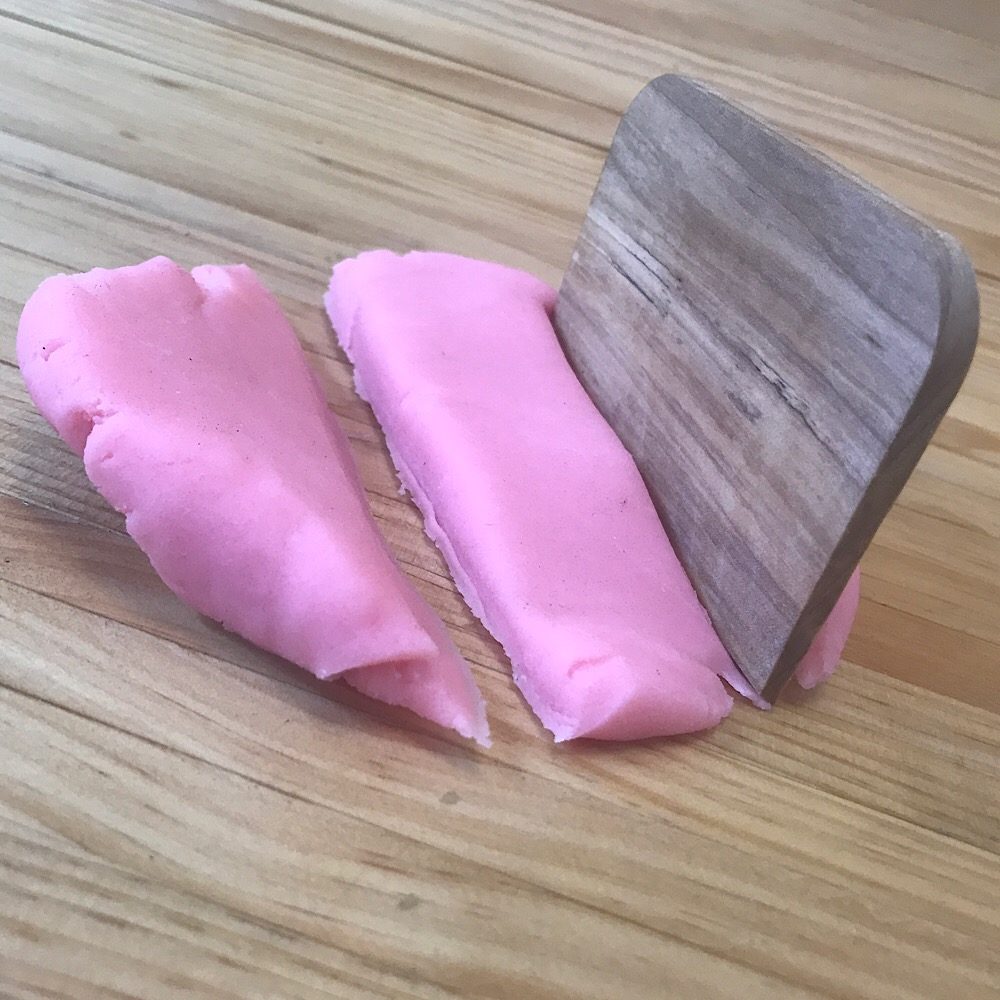
Table of Contents
Overview
This is the second in a series of posts looking at Simple Machines (Lever, Wedge, Inclined Plane, Pulley, Wheel and Axle, Screw). Becoming more aware of the Wedges, and other Simple Machines, in your early learning setting will make you more confident supporting STEM (Science, Technology, Engineering, and Math) play and answering children’s questions about how many everyday items work.
What’s A Wedge?
A wedge is an object with a pointed edge at one end and a wide edge at the opposite end. Wedges are commonly made of wood or metal but can be made of other materials as well. First made of stone, wedges are probably the first simple machines to be used by humans. The first wedges were probably used as weapons. Now wedges are part of everything from cookie cutters to garden rakes.
A Simple Machine is a mechanical device used to modify motion and force in order to perform work.
britannica.com
What Wedges Do
The job of a lot of Wedges is to split things apart. When Force is applied to a wedge’s blunt end, “it gets divided into output forces that are exerted in opposite directions, perpendicular to the input force.”
Here’s an example. When a knife blade (a Wedge) is pressed downward (Input Force) through a banana, the banana is split (Output Force), resulting in yummy slices of banana.

Wedges are everywhere! Even we humans are blessed with a face-full of wedges:

Most Wedges you encounter have attached handles that usually act as Levers. In the image below, the shovel (a Compound Machine made up of a Wedge and Lever) is used to slice a pumpkin.

Because of their shape, Wedges are great tools for slicing bananas, chewing food, and splitting wood. A Wedge’s narrow pointy end splits an object in twain with much less effort than a blunt object. For example, a log struck with a sledge hammer bounces away unharmed:

While the same log struck by an axe (a Wedge) splits in twain.

But Wait, There’s More!
Wedges cut and split, but they do other things as well. Here’s a list of all the tasks they perform:
- They cut (knives or teeth)
- They split (axes or cookie cutters)
- They tighten and hold (doorstops or zippers)
- They hold together (nails or pins)
- They scrape ( snow plows or paint scrapers)
Examples Of Wedges
Wedges are all over the daily lives of young children. Here are some examples of wedges kids may encounter:















Learning With Wedges
From snipping paper to slicing through play dough, there are many ways to offer children hands-on and learning-rich experiences with Wedges. Using hand tools is an easy way to play with Wedges–here are posts about setting up space to let kids use chisels and punches. Loose Parts play is another. As are craft, cooking, and sensory play activities.
Interacting with Wedges supports learning in all developmental areas: Social-Emotional, Language and Literacy, Cognitive, and Physical.
Wrap-Up
I’d love to see and hear about Wedge and other Simple Machine play in your early learning setting–share your thoughts and photos in the comments.
Author
Jeff Johnson is an early learning trainer, podcaster, and author who founded Explorations Early Learning, Playvolution HQ, and Play Haven.
In-Person And Online Training
Learn how to book an in-person or online training for your organization on these early learning topics.
Support The Site
I participate in the Amazon Services LLC Associates Program, an affiliate advertising program designed to provide a means for me to earn fees
by linking to Amazon.com and affiliate sites.
Thanks To Our Patrons
This post was made possible by patrons like these, who generously fund our work:
Supporters
Lissadell Greene Stephanie Goloway Jennifer Stark
Lagina Kozak Michelle Hankins
Marie Messinger Tamara L. Lakin
Fans
Jen Flemming Lizz Nolasco Cynthia J Bays
Susan Warner Kelly Sigalove Shawn Wolf
Vittoria Jimerson Codee Gilbert Wendy Tedford
Monica Morrell Pam Soloman Melissa Franklin
Teresa Watson Erika Felt Autumn Peele
Melissa Taylor Jahmeela Robinson Stacie Manning
Amber Maurina Terra Calamari Anne Jackson
Lagina Kozak Samantha Yeager-Cheevers
Elizebeth McCoy Sammy Cousens Ellen Cogan


Leave a Reply